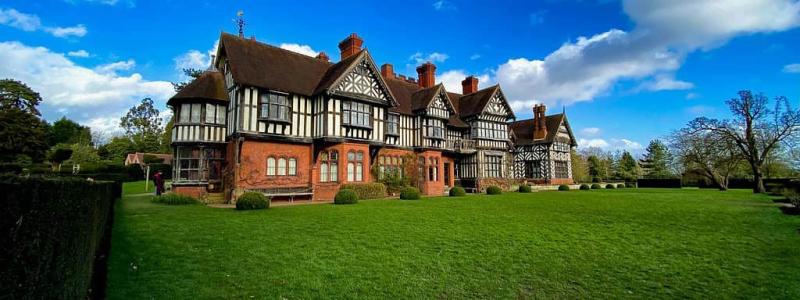May 31, 2024
Mortgages for wealthy people are easier and cheaper
It may seem obvious that mortgage for the wealthy are easier and cheaper but it's not really about unfair advantages as some would suggest.

I understand why many would think wealthy applicants have an easier time getting a mortgage than 'the rest of us.' There are certainly differences in some ways, but there is no difference in the process of proving affordability.
Being wealthy does not get anyone a pass regarding regulatory requirements. I say that about residential regulated mortgages. Why that specifically? Well, regulated mortgages where the applicant is purchasing a property as their main or even second home to live in are heavily regulated, and everyone is treated the same. Mostly.
For other types of mortgages, there can be many differences, but not specifically because of wealth, simply because they are not regulated; therefore, lenders have much more flexibility regardless of wealth.
High Net Worth (HNW)
Mortgage regulations have a specific requirement for determining whether someone is wealthy. It's called High Net Worth (HNW), and the regulations state this:
a customer with an annual net income of no less than £300,000 or net assets of no less than £3,000,000, or whose obligations are guaranteed by a person with an income or assets of such amount.
When an applicant is HNW, it does open up opportunities, but often with conditions.
What is different for wealthy applicants?
To reiterate, every customer must fill out an application, prove affordability, provide evidence of their income and/or assets, etc. There is no difference.
What it can do is.
- Allow higher borrowing
- Allow a choice of Repayment or Interest Only mortgages
- Allow the use of alternative sources to demonstrate affordability
- Allow cheaper mortgage rates where the applicant also holds assets of a minimum £x with the lender
- Allow different types of repayment strategies
- I will break a couple of these down in more detail.
- Alternative sources to demonstrate affordability
For most of us, our income is salary, which is earned by going to work. That may still be the case for some but at significantly higher levels. Others may have no earned income but do have significant liquid assets, such as cash or investments.
An applicant may have sold a business and have £15,000,000 cash. For example, an applicant wants a mortgage of £2,000,000 over 10 years, and after the initial assessment, it shows they need £350,000 per year to meet all of their existing obligations and the new mortgage. Well, they have all that cash. £350,000 each year for ten years is £3,500,000. If they agree to ringfence that cash over the next ten years to cover those costs, they will still have £11,500,000 remaining for any other plans they have. Therefore, affordability is met.
This example may also allow the applicant to be offered a cheaper mortgage rate than most others. This is because all that cash is held with the lender. The applicant may be required to maintain a minimum balance of £5m with the lender, or their rate will go back up. Some lenders may even need an applicant to keep all the cash, so yes, it is a cheaper rate, but with conditions.
Different types of repayment strategies
Sticking with the example above, an applicant may choose an interest-only mortgage. This means the client only pays the interest over the 10-year mortgage term. At the end of the term, the £2,000,000 borrowed remains outstanding and needs to be repaid. Again, the client has all that cash. We come back to regulation here. An applicant must demonstrate a realistic strategy to repay the mortgage at the end of the term.
The Applicant may promise to ringfence £2,000,000 of their cash, keep it until the 10-year term ends, and repay it that way. This sounds reasonable, and even after setting aside the money needed to service the mortgage and other obligations over the mortgage term and keeping £2,00,000 to repay it, there is still £9,500,000 for whatever else they do.
I could go on, but you get the idea.
Why not just buy the property with all that cash?
I know you were thinking about it, and it's a reasonable question. Why would someone need a mortgage when you have £15,000,000 cash?
There are many reasons. It could be related to tax and trying to minimise it. An applicant may believe the property will be worth significantly more in ten years. It could be sold to repay the mortgage instead of using cash and buying something else with the profit.
However, a common reason is that clients with significant wealth, such as in the example, could invest that money and potentially make more than the interest payments.
If a £2,000,000 mortgage with a 5% interest rate, on an interest-only mortgage costs £100,000 each year, but investing that £2,000,000 has the potential to return 6% or £120,000 each year, then you can buy a house with a mortgage, invest the money, cover the cost of the interest and still make £20,000 extra each year. Then, 10 years later, you have £200,000 more than you had at the start, and the property may be worth £2,500,000. So a profit of £700,000.
As the saying goes, the more money you have the more money you will make!
Times have changed
It's not all bad news for others though. Some elements that were reserved more for wealthy applicants are more widely available to the wider market.
Interest only mortgages have always been available but in recent years more restricted. An issue is that this type of mortgage was sold to anyone in the past and not being well managed. There are many with a mortgages today that took out an interest-only mortgage and 25 years later, at the end of term, are unable to sell it for significantly more than the mortgage outstanding and purchase a smaller property outright. That was the intention. Today, these are more strictly managed but also more widely available again.
Better rates are also still available to all as part of loyalty schemes at some lenders.
Lenders can be more flexible on using alternative sources of income to demonstrate affordability.
Whenever you have a non-standard request for a mortgage, it's important to always consult with a suitably qualified professional who can find the most appropriate lender or range of lenders to meet those needs.



Comments (0)
Want to comment on this page? Login or Register.